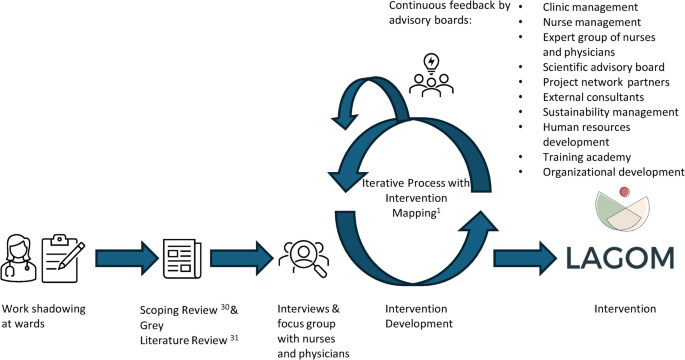
By Simran Sagar Singh
Becoming a parent is the most beautiful experience ever. From the moment you hear the heartbeat of the baby while still in the womb to holding the new life for the first time, you embark on a journey filled with emotions of pure joy, love and a sense to protect this new life with everything you have. For some parents, this fresh beginning also brings about difficulties they never anticipated. Globally, approximately 1.35 million newborns are born with congenital heart defects (CHD) every year, with a prevalence of 9 per 1000 births.

Congenital is the most frequently occurring congenital disorder responsible for 28% of all birth defects. In India, recent studies have reported a birth prevalence of CHD, of 9 per 1000 children. Alarmingly, CHD significantly contributes to infant mortality in India. Over 200,000 children in India are born with a congenital heart defect each year. 70,000 of these children are born with a critical defect requiring immediate treatment for the child to survive.
However, only 25% of these children are able to access the treatment. Lack of awareness and funds remain the biggest obstacles between life and death. Without prompt and effective treatment, a child with a congenital heart abnormality would struggle to survive and develop. These vital factors take on even more significance when we consider that CHD is a significant contributor to infant mortality, highlighting the urgency of addressing this issue.
The tough realities of parenting these kids frequently overshadow the joy of parenthood, pushing them to embark on a journey they had never imagined to be on. The good news is that most kids with congenital heart defects can live relatively normal lives thanks to advances in science. The timely diagnosis and treatment of these problems is crucial, though. For many parents, navigating the healthcare system may be challenging and sometimes emotional. If you know of or are aware of
a child who was born with a congenital cardiac problem, the following suggestions may help you navigate this journey.
1) Getting a Diagnosis: A congenital heart abnormality can frequently be identified during pregnancy or shortly after birth, especially when it is a serious condition. If the sonographer suspects a defect during the antenatal visit then the mother is
recommended for a fetal echocardiogram – a specialised ultrasound to closely examine the structure of the foetus’s heart. The symptoms, however, may not always present themselves after birth.
Parents should keep an eye out for the following signs: Shortness of breath, rapid heartbeat, frequent chest infections, tiredness or rapid breathing when the baby is feeding, the appearance of a blue tinge on the lips and fingernails, inability to
gain proper weight, and extreme tiredness or fatigue. If you suspect your child has a heart defect, then it is important to connect with a pediatric cardiologist and get a diagnosis.
2) Accepting the Situation: When you learn that your child has a congenital heart problem, everything in your world crumbles. It is normal and human for you to feel a variety of emotions, including shock, despair, guilt, anger, and a host of other negative feelings. Remind yourself that you are not fighting this battle alone while you process your feelings. To assist you on this journey, there is a team of committed medical experts and NGOs working in this area.
3) Finding the Best Care: Once your child has been diagnosed, it is crucial to put together a team of professionals who can guide you through the process. A paediatrician, a pediatric cardiologist, pediatric cardiac surgeons, and nurses make up this team. Finding the team that is ideal for you and your child is crucial. In order to make an informed decision, reaching out to a medical expert in a tertiary medical facility, local support groups and other parents who have experienced this path would be beneficial.
4) Arming yourself with the appropriate knowledge: In the modern world, information is a superpower. Therefore, learning more about your child’s illness will help you support them better along the way. Speak with the medical staff providing care and seek out reputable organisations to assist you in your search.
5) Medical Intervention: Congenital cardiac problems are typically treatable, provided they are identified and addressed quickly. Therefore, it is crucial that you heed the counsel of your medical staff. Children with heart conditions can now lead lives that are close to normal because of advancements in pediatric cardiology. On this journey, it would be beneficial for you to keep a close connection with the treating medical team.
6) Financial Support: Congenital cardiac abnormalities can be expensive to treat, making it challenging and emotionally taxing to organise resources. Medical crowdfunding provides a great opportunity to raise funds for the treatment of your child.
7) Self-Care: In the midst of all the doctor’s appointments, medical decisions, hospital visits, and child-care responsibilities, it’s crucial to prioritize your own physical and mental health. It’s okay to feel stressed since this battle to heal your child is not an easy one. In order to manage the tension and emotions that develop into a significant part of your journey, it is also acceptable to seek assistance and counselling.
8) Honouring Milestones: In the midst of doctor’s appointments, treatments, and monitoring the child’s health, remember to take time to honour the tiny victories your family achieves together on the road to recovery, such as the first grin, the first day of school, or a simple dinner the whole family shared.
So, for parents navigating the healthcare system with children facing CHD, the importance of early detection and intervention cannot be overstated. In the backdrop of these global and local statistics, it is clear that your journey may involve challenges, but it is one marked by unwavering love and the pursuit of a healthier, happier future for your child.
(The author is a Operations Director at Genesis Foundation. Views expressed are personal and do not reflect the official position or policy of the FinancialExpress.com.)
link







